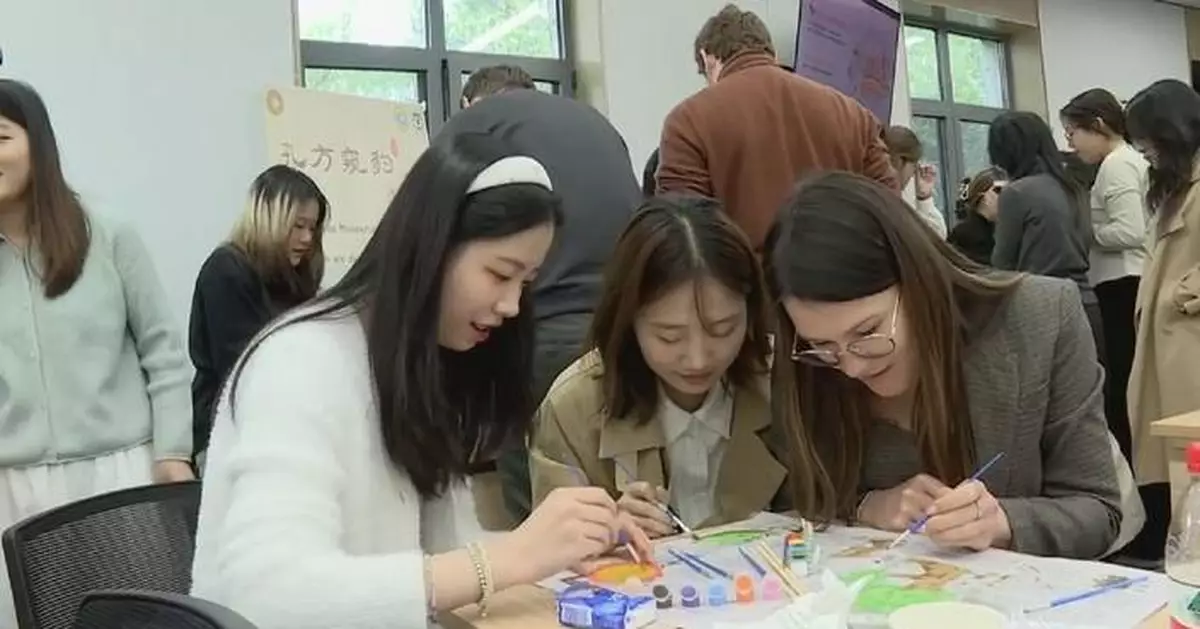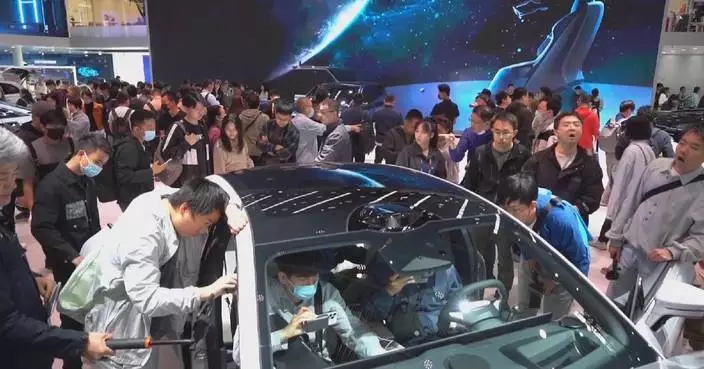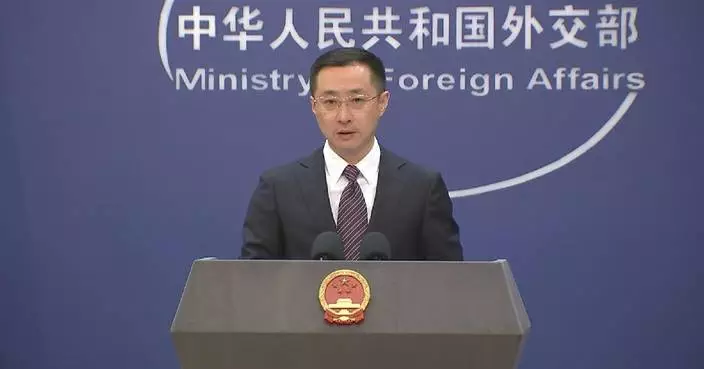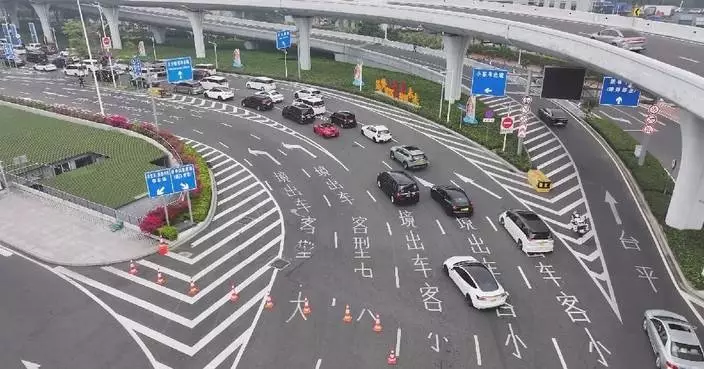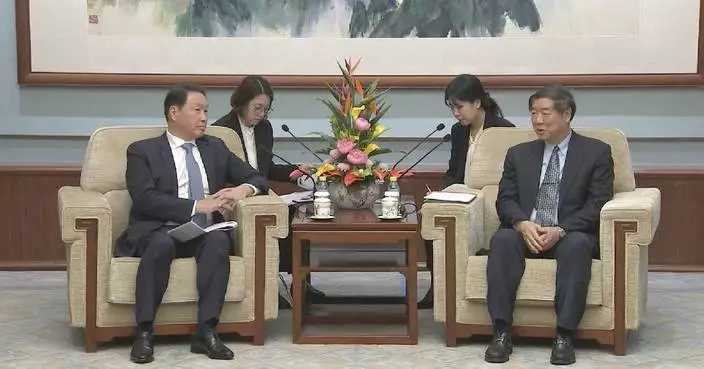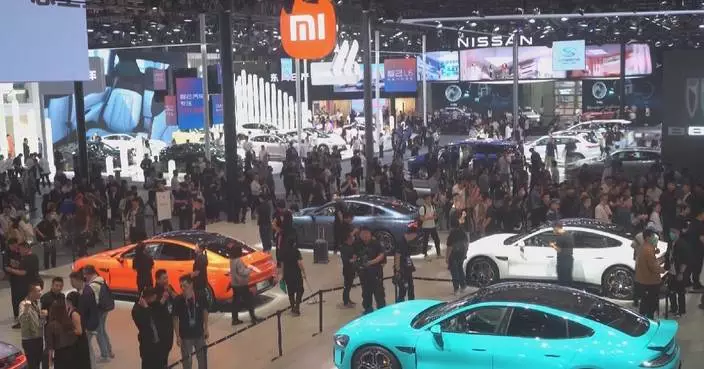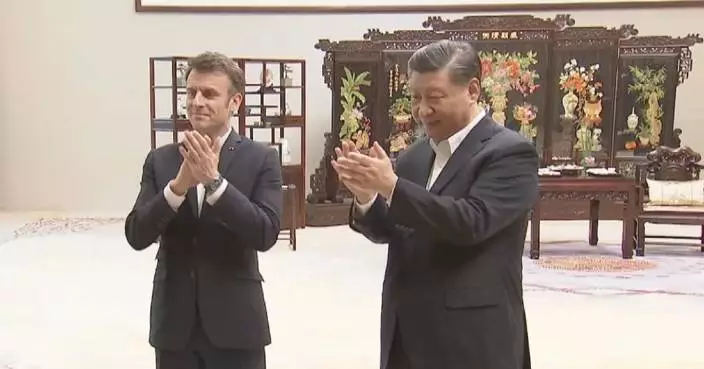A German youth delegation visited Beijing Foreign Studies University (BFSU) in March, where they exchanged views with Chinese students on Chinese culture, digitalization and innovation, and participated in colorful cultural activities.
Digital Seeds, a project of Huawei Technologies Deutschland GmbH, organized the trip, hoping the delegation of 30 students would help build bridges of exchange between the two countries.
"Digital Seeds is a project of Huawei in Germany. We started this project in 2013 to bring innovation, digitalization, entrepreneurship and sustainable development closer to students in Germany as well as students in Austria and Switzerland. For example, last year we selected 100 students from these three countries. They came together to form multiple teams, and independently developed digital business models. An independent team of judges then selected the best teams. Then we took the best teams and went to China for a two-week visit," said Carsten Senz, Vice President of Corporate Communications of Huawei Technologies Deutschland GmbH.
"This year, we are hosting the Digital Seed project for the third time. We are delighted to welcome German students again this year. I learned about the motto of this project on Huawei Germany's website: Rethinking is good, implementation is better. This means that German students first get to know China on the spot. For Chinese students, this is also a good opportunity to have direct contact with German students," said Wu Jiang, dean of the School of German Studies at BFSU.
The visitors were joined by Chinese students from the BFSU School of German Studies as they took part in colorful activities including ancient coin casting, shadow puppetry, Chinese kung fu and paper-cutting.
"It's fun to try it out. We tried templates (for paper-cutting). I was very interested in China when I was a child. That's why I saw this project and immediately wanted to be a part of it, because I really wanted to come here," said a German student.
They also conducted exchanges on topics such as the protection of intangible cultural heritage, sustainable development and environmental protection.
During their two-week trip in China, the German students visited cities including Beijing, Shanghai and Shenzhen, and exchanged ideas with people in multiple Chinese and German companies and universities.
"The world is undergoing profound changes, and young people have a special responsibility for the future. We are very pleased that young Chinese and German students have the opportunity to establish direct contacts," said Wu.
"I very much hope that this exchange can be further promoted, not only through our programs. In general, there are more projects in diverse fields where people from different countries can once again exchange ideas with each other," said Senz.
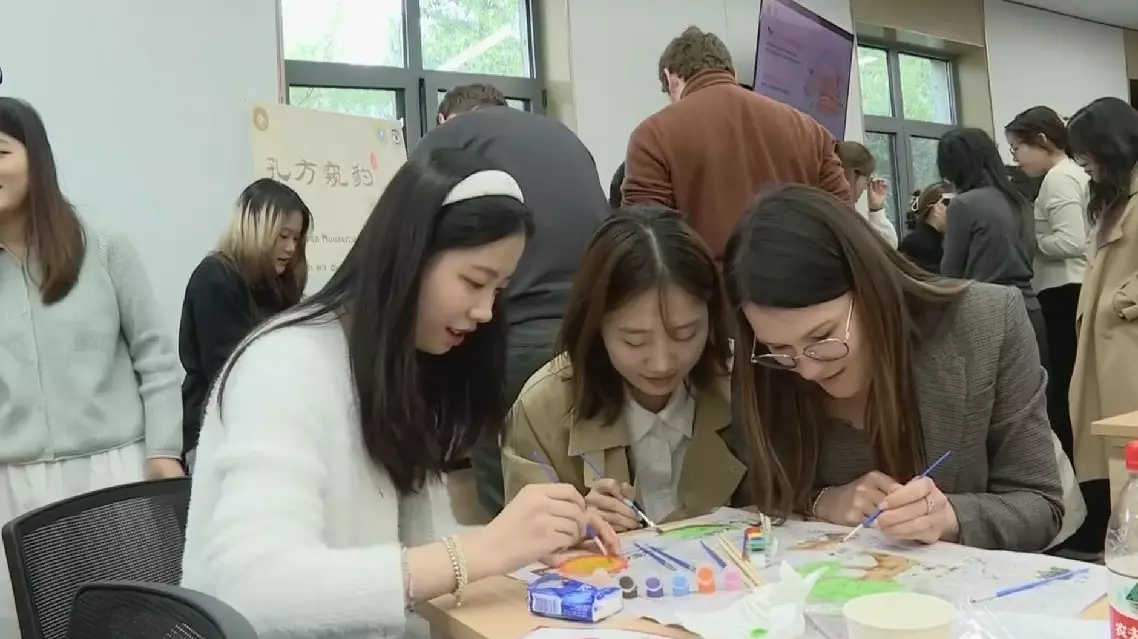
German students visit Chinese universities to exchange ideas on development
The year 2024 celebrates the 60th anniversary of China-France diplomatic ties, and it also heralds the China-France Year of Cultural Tourism, a celebration aimed at bolstering cultural and people-to-people exchanges through a series of enriching events.
During a special episode focused on this milestone, cultural experts and influencers from both nations shared insights into the depth of Sino-French cultural interactions.
The discussion, livestreamed from Shanghai on April 22, began with a historical overview, notably when then-Chinese Premier Zhou Enlai introduced President Georges Pompidou to the Yungang Grottoes, a renowned Buddhist cave site in north China's Shanxi. These caves feature intricate carvings that reflect religious and cultural syntheses from the 5th and 6th centuries.
David Gosset, founder of the China-Europe-America Global Initiative, commented on the geopolitical context of the initial outreach.
"People have to remember that we were in the middle of the Cold War, therefore, the world was divided. For a Western country like France to reach out to China, and of course vice versa, it's a beautiful moment, historical diplomatic breakthroughs, means that despite all the geopolitical difficulties, a spirit of cooperation and friendship can prevail," said Gosset.
Xie Dingwei, executive director of the Bund One Art Museum, emphasized the importance of preserving cultural heritage.
"We need to preserve these cultural heritages. We not [just] preserve the sculptures or the buildings itself, but also, it gives us a chance to see hundreds of years ago, how our craftsmanship, our architecture, our human beings, we have reached [such] high levels, which brings us to the present time these treasures, these values. This is something we really cannot afford to lose. Culture is a common language; it doesn't matter you're Eastern art or Western art, somehow they can be connected. So this is something I think it creates a communication channel between the nations," said Xie.
The cultural connection was recently demonstrated during a meeting last April between French President Emmanuel Macron and Chinese President Xi Jinping, where they enjoyed the performance of "Flowing Water" played on the Guqin by a Chinese artist, symbolizing the flowing friendship between the two nations.
"This communication on art subjects between the nations and different peoples are really, really important. It goes beyond politics, beyond the differences between the nations. But you all go to getting closer to understanding each other," said Xie.
Gosset also supported the notion of fostering unity through cultural platforms, aligning with President Xi Jinping's idea of building a community with a shared future.
"I am completely aligned with this idea. We are on the same boat. Our world is frightened by too many divisions. And I think, what is important is to support the forces that can unite us, so it can be music, and certainly museums, and you need leaders with a vision that does not separate us," said Gosset.

Six decades of China-France diplomatic relations highlighted by cultural exchange



